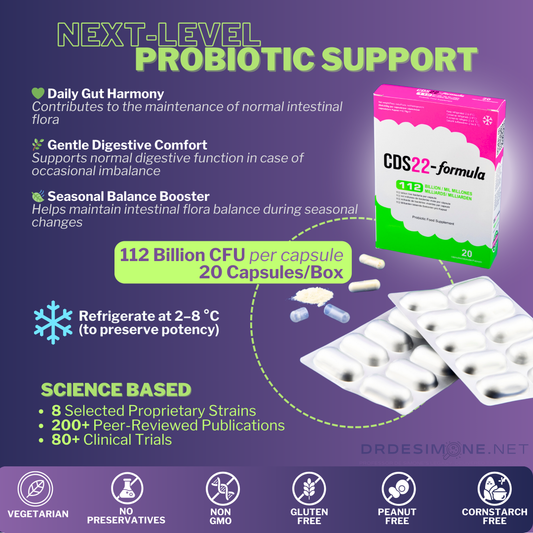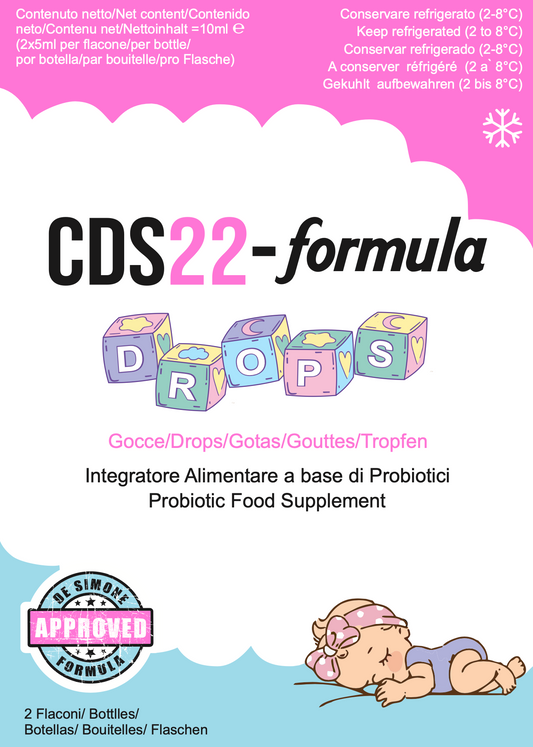
Summer and your gut: how your balance changes when everything else does
Share
This article is also available in:
🇮🇹 Italiano · 🇫🇷 Français · 🇩🇪 Deutsch · 🇪🇸 Español
We are never the same — not even in our gut.
While we often imagine the gut microbiota as a kind of “biological fingerprint,” something stable and unique, the truth is much more dynamic: our internal ecosystem shifts with the seasons, just like we do.
Summer changes everything — our schedules, our diet, our habits, and our environment. And with those changes, the gut microbiota reorganizes itself. But under what conditions? And with what consequences?
1. Your gut adapts to your environment
Your gut hosts trillions of microorganisms that constantly interact with both your internal and external world. They feed on what you eat, respond to stress, adapt to your sleep cycles — and, as scientific research confirms, even react to seasonal changes.
A 2014 study published in The ISME Journal investigated the microbiota of Hutterites, a rural North American community with a highly standardized year-round diet. Surprisingly, despite minimal dietary changes, the composition of their gut microbiota varied significantly between summer and winter¹.
In summer, microbial diversity dropped, with noticeable shifts in dominant bacterial groups. This suggests that temperature, sunlight exposure, and even circadian rhythms may directly influence our gut ecosystem.
2. Heat stress affects your gut barrier
Summer isn't just lighter — it's also more challenging for your gut.
Prolonged heat, dehydration, cold drinks, unfamiliar foods while traveling, or altered sleep patterns can lead to:
· Increased intestinal permeability (aka “leaky gut”)
· Reduced production of short-chain fatty acids (SCFAs), essential for gut barrier health
· Transient dysbiosis, affecting immune balance and digestion
No wonder many people report bloating, irregular bowel movements, digestive slowness or reactivity in summer. It’s not just a feeling — it’s a biological adaptation to external stress.
3. Summer habits feed different microbes
It’s not only the heat that changes your gut — it’s your entire lifestyle:
· More sugars and simple carbs (ice creams, soft drinks, ripe fruits)
· Less fiber (think fewer cooked vegetables or legumes)
· Irregular meal timing
· Different water sources and microbial exposures while traveling
This alters the substrate on which your microbiota thrives — reshaping your entire internal ecosystem.
4. Why probiotics are especially helpful in summer
Taking a probiotic in summer isn’t just a “boost.” It’s a targeted way to support a vulnerable system.
A high-quality, multi-strain probiotic can:
· Preserve microbial diversity
· Reinforce gut barrier integrity
· Reduce the impact of transient dysbiosis
· Support recovery after mild gastrointestinal events
But not all probiotics are created equal. CDS22-formula contains the original De Simone Formulation — a clinically tested blend of 8 probiotic strains, studied not just individually but in synergy, as a formulation.
Backed by over 200 scientific publications and 80 clinical trials, it's a formulation proven effective in conditions of microbiota imbalance, altered motility, and intestinal inflammation.
5. A well-balanced summer starts inside
Summer is a season of freedom, movement, and spontaneity. But it’s also a time when our gut is more exposed.
Just as you use sunscreen to protect your skin, you can support your gut with the right tools — for stability, resilience, and peace of mind.
¹ Davenport ER et al. – Seasonal variation in human gut microbiome composition. The ISME Journal. 2014. PMID: 24618913






